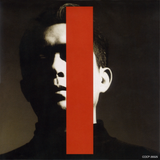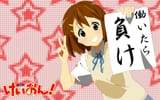
4274
md5: d10efd9e9dd20f39f89678144a11b0e4
🔍
whats the best way to learn japanese i am a weeb and want to play japan only video games
i can dedicate hours a day to it i am 19 i have no job and dont go to school i am a neet
Learning japanese is hard. What if you start watching animes with english subtitles? At some point you will recognize patterns in spoken words / english subtitles.

I can only speak from my limited experience. The best way is the one you find for yourself. You might never find it and even reach the top doing something that could be considered sub-optimal, but remember the most important lesson of them all: unless you're learning objectively wrong stuff, there's no terrible way to go about it; just keep up the pace and don't ever stop. You can find ways that suit you better later, just finish today's work first. You should of course try flash cards, i.e. Anki, to see if you like it. The many premade decks will help you get started on most subjects you want to tackle. Later, you can even make your own decks. If you end up hating it, minimize its usage or stop completely so that you don't start hating studying. I admit I'm a bit ignorant on the alternatives; Anki just works so well for me I didn't spend much time using alternatives.
There's only one place to start and that's being able to read (and ideally write) kana. It should take you a good day's worth of work to get there. When I started out, there was this website that showed you a character and you'd have to type in its romanized equivalent. This really lets you grind recognition quickly. I suppose you could also try Remembering the Kana book, or find something that's more to your taste.
Getting a 30 second lesson on how to grammar is your next step. It will allow you to start reading some very simple manga (like Youtsubato) that has furigana (so no kanji knowledge required). Perhaps there are better quick start guides these days, but Tae Kim's guide is the one I used and the only one I know. It's bare bones and I think it even has a few inaccuracies, but it gets the ball rolling so that you can start reading and listening ASAP. You want to read at a decent speed and you shouldn't let your kana (and later, kanji) skills rust.
Manga is good because it has a lot of context in the form of pictures, and together with furigana they make consuming very accessible for complete beginners. Visual novels have both reading and listening, which is great, but few feature furigana. These two mediums are top tier, but do enjoy the others as well, especially if you're interested in them.
Intermediate+ grammar can be done in several ways, like going through textbooks with exercises, guide books or Anki decks (like the Dictionary of Japanese Grammar ones). I suppose you will learn from context as well, but I believe it's a good idea to have a good look at everything the grammar department has to offer. If nothing else, you will know what's there and that you can consult a dictionary or similar to clear things up quickly when important context inevitably becomes intelligible.
Learning kanji will appear daunting and you've indeed got your work cut out for you. It's important to remember that the characters aren't "random" most of the time; there are several rules to them that help you remember their on readings, their meaning and how they're written. Recognizing their existence and noticing the patterns is going to make it easier for your, if only mentally. I first learned the 214 parts that are considered the building blocks of kanji. It wasn't useless, but I wouldn't exactly recommend it either. You can still go about it, since it's quick. I then just went on to grind the Remembering the Kanji deck. It was tough work, more so because I was writing the characters down every time I encountered their card.
If you're going for the Anki method, keep in mind the reviews you're getting. If you're getting more reviews than you can handle, drastically lower the amount of new cards you get each day, or even pause them completely. There's no shame in doing that. I was spending over 90min per day on that deck also until I got decent at both kanji themselves, as well as writing and reviewing it quickly. Here, too, I would like to state that this was less than optimal. My deck had the "meaning" on the front, everything else on the back of the card. Instead, I recommend this WaniKani deck https://ankiweb.net/shared/info/610839770 that has a more realistic approach to learning kanji. It has you guessing the kanji from the examples of words (it has a lot of extra info to help you guess, but you can hide it in spoilers or remove it completely). Some cards are a bit lacking in examples, but you're learning words and kanji together this way. I think this is how they do it on tests in schools in Japan. See for yourself if writing helps you remember better. Working through text books is perhaps an alternative, by repeating the exercises in them often enough retain the knowledge. However, the more rare characters don't appear that much, which is why flash cards are so good here.
Getting a decent vocabulary will take time, but the basics can be covered by the 6k Anki deck. If you really hate Anki, just do the 2k one. Like with grammar, you want the meaty parts fast so that you can focus on immersion. I suppose names fall into this category as well. Don't worry too much about being able to read them, but you might eventually study this if you wish. Character introductions will typically have furigana, and so will places.
There's a thread for learning on both /jp/ and /int/. They have links to resources. I don't have much experience with the latter, but don't recommend getting sucked into the threads. Get what you need from them and leave to study.
I'd suggest using comprehensible input if you want to become actually fluent. I tried cijapanese.com for a while and it was pretty good.

